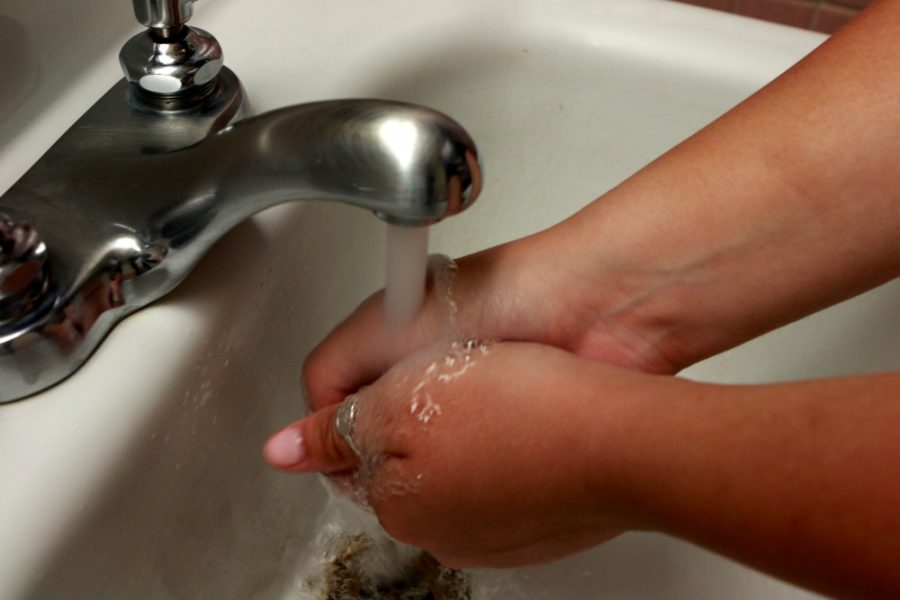Some say living in the dorms is part of the complete college experience, but does that need to include getting sick?
For many, moving into dormitories marks a milestone, symbolizing independence and adulthood. Julia Valgento, a pre-business freshman, said she’s had a great experience living in the honors hall Árbol de la Vida.
“Everyone on my floor is really nice and respectful of one another,” Valgento said. “Things like gross bathrooms aren’t really an issue because people are respectful, but I do know other people who have that issue in other dorms.”
Valgento got sick her second day of college, however, and believes living in the dorms played a major part to her feeling ill.
“Once I got sick from someone in my hall, then everyone else started to get sick,” she said.
Here are five ways students can combat everything from the common cold to the flu this coming season:
1. Reduce exposure
Dr. Michael Stilson, director of medical services at Campus Health and Wellness, said dorms facilitate the spread of upper-respiratory infections due to the close proximity of students.
Stilson’s first piece of advice is to limit long periods of exposure to sick people. He couldn’t confidently confirm that dorm students seek medical attention from Campus Health more often than students living off campus, but Stilson did mention students living on campus are more susceptible given the living conditions.
2. Be proactive
Stilson said students will come in having a variety of symptoms such as coughing, sore throat and the occasional stomach flu, but he sees a lot of patients with upper respiratory infections. Stilson said Campus Health always recommends students get flu shots administered by Campus Health personnel currently running clinics on the UA Mall.
3. Being healthy is a full-time job
Stilson mentioned students should take care of themselves year round to avoid getting sick because there are always viruses and infections spreading around. People can consume nutritional foods that build up the immune system, stay hydrated—sick or not—and get seven-and-a-half to eight hours of sleep per night to help remain healthy.
Sleep not only affects physical health, but psychological health as well.
RELATED: News flash: College students don’t get enough sleep, so here are some tips on how to fix that
4. Wash out and be courteous
“Definitely drink lots of water and take vitamin-C,” said Avery Howard, a pre-nursing freshman living in the Coronado residence hall.
Howard said washing your hands and occasionally cleaning your room are both very important. She mentioned that if someone around you is sick, they should warn others as a common courtesy.
RELATED: UA Campus Health explains why you should care about Meningitis B
5. Just do it
Staying active and getting your regular dose of exercise can also reduce the chances of contracting a sickness—something Stilson encourages and hopes students practice.
Following these five tips can not only help you stay healthy, but others as well. Be proactive this season and fight those ailments that will otherwise bring you down.
Follow Alex Gonzalez on Twitter.









